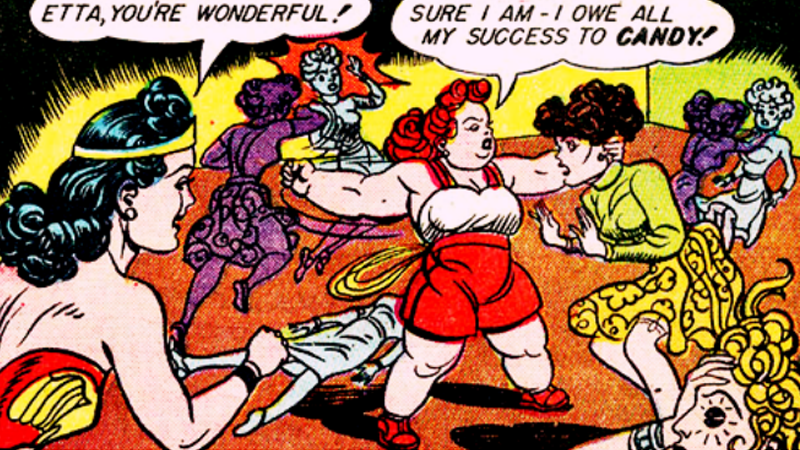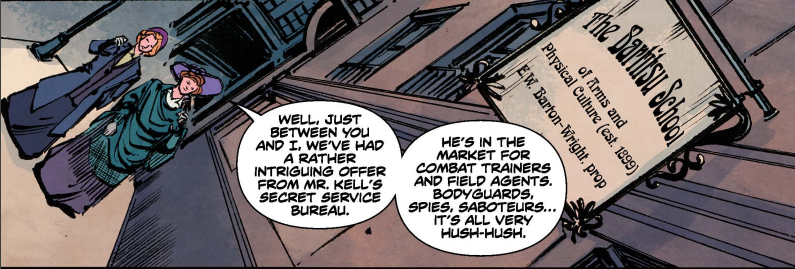If you’ll forgive us some speculation, we’d lay even odds that Wonder Woman’s right-hand-gal Etta Candy (Lucy Davis) will be revealed as having an action-packed past as a radical suffragette.
The character of Etta Candy was first introduced in 1942. A creation of Wonder Woman auteur William Moulton Marston, she was originally the confection-loving de facto leader of a group of spirited young sorority women known as the Holliday Girls, who frequently assisted Wonder Woman in her battles with Nazi spies and other WW2-era evildoers:

The upcoming Wonder Woman movie, however, takes the bold creative step of shifting WW’s “origin story” back a few decades, to the First World War. In this continuity, Etta Candy is fighter pilot Steve Trevor’s secretary; Trevor’s crash landing on the hidden Mediterranean island of Themyscira is, of course, how the Amazon princess who is to become Wonder Woman is first introduced to “Man’s World”.
Both of Etta’s brief appearances in the theatrical trailers released so far play to her traditional strengths as a feisty comic relief sidekick. In the first trailer she answers Wonder Woman’s question – “What is a secretary?” – by saying “I go where he tells me to go and I do what he tells me to do”. WW, clearly a little perturbed by this, replies “Well, where I’m from, that’s called slavery,” which deeply impresses Etta.
The second trailer features another comic coda in which Wonder Woman is trying on an elaborate early 20th century ensemble complete with a flowered hat and a voluminous skirt. She’s baffled as to how a woman is supposed to fight while thus encumbered; Etta replies that they mostly fight with their principles, but that she herself is “not opposed to engaging in a bit of fisticuffs, should the occasion arise.”

In a WW1 context, and given the fact that this incarnation of Etta Candy is English, it’s very easy to speculate that she may have been a suffragette before joining the armed services. With the outbreak of war, Women’s Social and Political Union leader Emmeline Pankhurst performed an abrupt political about-face; rather than fighting the government for the right to vote, she told her many followers, they must support King and country for the duration of the crisis.
This was a controversial move and some radical suffragettes refused to comply, but others agreed that “Votes for Women” would become meaningless if England itself fell to German aggression. In the Suffrajitsu graphic novels, protagonist Persephone Wright, formerly the leader of Mrs. Pankhurst’s covert security team, also joins the war effort:

The movie version of Etta is a principled English feminist “not averse to fisticuffs”; here’s hoping that she’ll surprise (and delight) her audience by proving to be a suffragette action heroine in her own right.